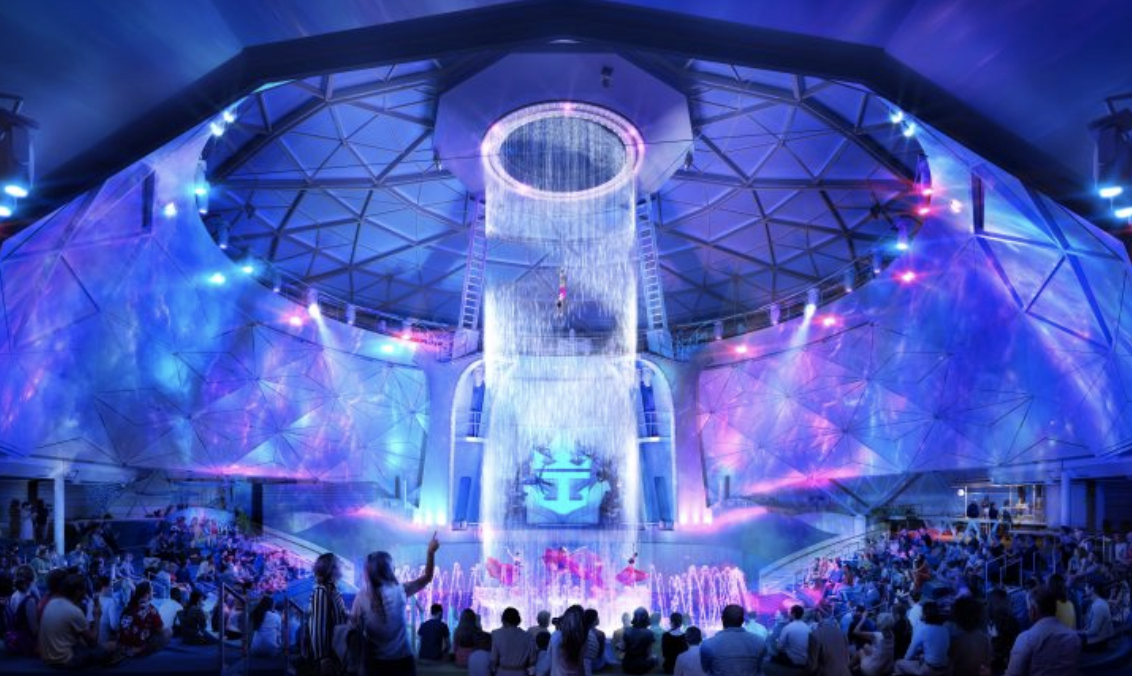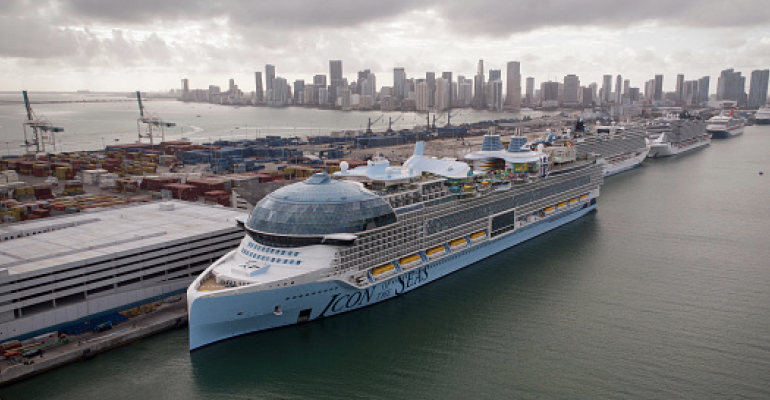January 27 saw the maiden commercial voyage of the Icon of the Seas from the port of Miami, with the Royal Caribbean-owned ship—at a length of nearly one-quarter of a mile—capable of hosting 5,600 guests across its 20 decks.
For a vessel of its size, it’s a bit surprising that Icon of the Seas has a conference center that can accommodate up to 180 people across three rooms that can be combined or separated with airwalls. A few other Royal Caribbean ships have conference centers that can accommodate as many as 400 attendees.
On the other hand, besides the new vessel’s eight “neighborhoods,” seven swimming pools, and five sit-down restaurants, Icon of the Seas has seven music lounges and two theaters—one a high-tech domed show venue (image below), the other featuring an ice surface for skating performances—that can be rented out by business groups during the day.

With sustainability an issue for many meeting hosts, the concern about the environmental impact of cruise ships is not diminished with the Icon of the Seas. According to an article on CNBC.com, the ship runs on liquefied natural gas, which produces less carbon emissions than other marine fuels. However, LNG emits significantly more methane, which is about 80 times more potent than carbon dioxide in its effect on atmospheric warming.
Using LNG to power cruise ships “is a step in the wrong direction,” Bryan Conner, director of the marine program at the International Council on Clean Transportation, told CNBC. In response, Royal Caribbean International said that every kilowatt of energy used for the Icon of the Seas “is scrutinized for energy efficiency and emission reductions.” And the size of the new ship means that the rate of emissions per passenger is roughly in line with industry norms.





